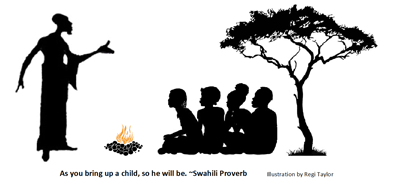“Really, it’s a parenting question. Are the parents talking to their young people to let them know that downtown belongs to you too? The Inner Harbor belongs to you too, but you go there and act with common sense and decency and not go down there to disrupt and fight and create mayhem…”
Baltimore Mayor Jack Young’s vehement response to the violence and property destruction attributed to hundreds of marauding teens over the weekend at the Inner Harbor was directed squarely at their parents.
Mayor Young pulled no punches attributing the responsibility for the behavior of young people as a parental issue. The mayor’s estimate of the numbers of delinquent youth creating havoc downtown as one percent was still over-estimated.
With nearly 130,000 Baltimoreans under 18, the accused “troublemakers” actually only represent 0.3 percent of the city’s youth. Mayor Young’s assertion that most Baltimore youth are not the “criminals” insinuated by the Baltimore Fraternal Order of Police is an obvious fact.
Too often, at the heart of the issue of unruly, undisciplined urban young people are contemporary cultural standards of child-rearing and discipline informed by technology, demands of parents’ employment, and other lifestyle factors that determine the amount and quality of time available for families to establish firm behavioral standards for children.
Of all the social, cultural and economic trends affecting the modern nuclear family in ways that degrade firm moral grounding for youth is perhaps the disconnect between the young and their elders which once existed as a communal bulwark inculcating successive generations with couth.
Grandparents and other older relatives possessed the patience, knowledge and wisdom that come from experience and long life that was once extolled as invaluable, and respected as a family’s brain trust. Their wise counsel was sought after and appreciated.
While it is more customary in western civilization to relegate older people to less revered status like the crazy uncle or senile grandma to be tolerated, Asian and African cultures, particularly, recognize elders as sacred, worthy of honor. A popular proverb from the Ivory Coast of Africa says: “The death of an elderly man is like burning a library.”
For African American children the tradition of elders playing a strong role in rearing was not only an ancestral tradition. Due to the disruption of families because of slavery the responsibility of raising and socializing youth naturally became the purview of the old.
A byproduct of being nurtured by elders not only provided African American children with being strongly rooted in their families with a clear sense of respect, children were indoctrinated on the survival tactics in a racist society and knew to comport themselves accordingly. Today’s youth may have a false sense of security.
Could the answer, in large part, be to readopt an ancient African standard of child rearing? Although not easy, the philosophy is simple: Parents should raise their children as aspiring parents. Parents must exercise the foresight that every interaction they have with their child is in preparation for their child to one day exercise those same practices to raise their own children.
Another profound African proverb, very appropriate here, reads: “A child is a parable of the life of a parent.” In contemporary parlance one might compare this saying to “the apple doesn’t fall far from the tree.” In any event, in the African tradition, every value, ethic, lesson, instruction, discipline, punishment and insight a child is taught by parents are all for the sake of preparing him or her to raise their own children accordingly.
